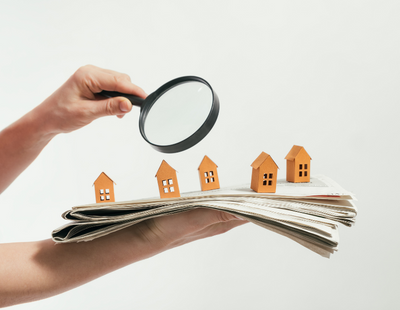
Airbnb is doing a U-turn with its global leader pledging to slash the number of professional landlords using the platform and identify those who remain.
The platform has long attracted complaints from a wide range of sources because it has allowed landlords to kick-out long term tenants and instead attract higher-paying short lets holidaymakers.
Now co-founder Brian Chesky says in an interview with the Sunday Times that he recognises the problem, and the damage this does to some local housing markets.
In the interview Chesky says he will undertake “a really serious audit” which will end up with the removal of professional landlords whose offering “doesn’t connect to the Airbnb brand” while those professional landlords who remain will be chosen because they offer an “authentic experience” - and those that remain will be “branded a little differently.”
This might include identifying whether landlords hosting tenants via the platform will be on hand to meet and greet and whether they will give local recommendations - two criteria, he suggests, which make it easier to spot remote landlords currently using the platform to fake local involvement.
He also pledges to give city authorities more information about the scale and scope of Airbnb properties and transactions which will help local councils catch unscrupulous operators.
Airbnb in particular, and short lets platforms in general, have been the subject of huge criticism by city authorities in recent months.
Politicians in Dublin have spoken of possibly buying short let properties to ensure they are used for genuine housing need, while the Budapest local government is the latest to consider capping the number of days a property can be short-let per year.
Meanwhile in the Portuguese capital of Lisbon, the mayor is pledging to “get rid of Airbnb” when the pandemic ends, by turning over the properties to become affordable housing for long-term tenants. Airbnb property owners apply to rent to the city authorities for a minimum of five years.















%20-%20IMAGE%20Client%20Accounting%20%E2%80%93%20what%20are%20your%20options.jpg)

%20(002).png)
.png)





Join the conversation
Jump to latest comment and add your reply
Airbnb has its place in the market and enjoyed by many for the convenience it offers.
However, it needs to be on the same Health & Safety platform of obligations that Assured Shorthold Tenancies are created upon such as fixed wiring inspection, EPC, CO detection, Smoke alarms (even HMO if a stag/hen/celebration booking?). Would they be obliged to hold some form of Client Money Protection also?
So in this "really serious audit", should he/they willingly provide a list of the properties to the Local Authority so some form of compliance and protection to guests is maintained?
Absolutely Angus, been shouting this for years. Funny Air BnB have never gone to the trouble of ensuring their clients were safe! Probably because it will cost them money to police.
I would also say these properties, are investment properties, so the landlord can get the best return on his money.
I appreciate it’s an emotive subject but the politicians, authorities and councils want private landlords to fix their lack of investment in new social housing.
Will they start asking for the dividends off investors shares?
Who wants to stay in a hotel now? Single door living when on holiday is where it's at, I'd much rather have a home to live in rather than be cooped up in a boxy hotel room for 2 weeks.
How about they check the actual owner of the property is the landlord, not some AST tenant who is illegally sub-letting it-that would go a long way to protect both their clients and customers.
Totally agree Mathew is a big big problem in london!
Most AirBnB is fraudulent.
So how about AirBnB checking that
Lenders
Insurers
Freeholders
Councils
Leaseholders
are OK with such AirBnB letting.
Very few such lettings will be legal.
A campaign against AirBnB wont get as much traction as the one against LL.
Why? Cos the left leaning millennials like spending money on mini breaks and see it as more 'value' to them rather than saving up their deposit for their own property.
I always wonder at what point does a lodger become an AirBnB occupant.
Technically a lodger may occupy for 1 day.
That is perfectly legal.
A LL may own multiple residential properties and take in lodgers who occupy for 1 day.
Such lettings in one of the LL homes would qualify for the RFRA scheme.
A LL may have as many homes as they can afford and take in lodgers
A live-in LL would tend to occupy a residential home at least once per month to comply with residential insurance conditions.
Few live-in LL would have more than 4 unrelated occupiers as that would generally require Mandatory HMO Licensing which would be unviable in most cases.
But the whole situation with lodgers and AirBnB is a bit of a minefield.
It needs to vet 'landlords' to ensure- they are the legal owners of the property (or have clear and written consent to sublet- or verify this directly), check it meets local licensing regs, that short lets are also compliant with any mortgage & buildings insurance in place. What's more, when notified of illegal sub-letting or reckless letting that is causing a misery to the locals the property should be instantly taken down, all booking frozen until a full review is undertaken. Having had an absolute nightmare with an illegal sublet and knowing soooo many others impacted by this and Airbnb's 'not our problem' stance
Please login to comment